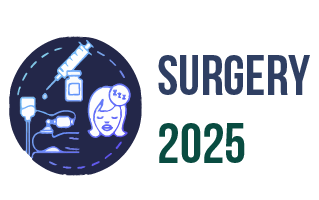Surgery 2025

University of Florida, USA
Abstract:
Gliomas are primary brain tumors derived from glial cells of the central nervous system, afflicting both adults and children with distinct characteristics and therapeutic challenges. Recent developments have ushered in novel clinical and molecular prognostic factors, reshaping treatment paradigms based on classification and grading, determined by histological attributes and cellular lineage. This review article delves into the diverse treatment modalities tailored to the specific grades and molecular classifications of gliomas that are currently being discussed and used clinically in the year 2023. For adults, the therapeutic triad typically consists of surgical resection, chemotherapy, and radiotherapy. In contrast, pediatric gliomas, due to their diversity, require a more tailored approach. Although complete tumor excision can be curative based on the location and grade of the glioma, certain non-resectable cases demand a chemotherapy approach usually involving, vincristine and carboplatin. Additionally , if surgery or chemotherapy strategies are unsuccessful, Vinblastine can be used. Despite recent advancements in treatment methodologies, there remains a need of exploration in the literature, particularly concerning the efficacy of treatment regimens for isocitrate dehydrogenase type mutant astrocytomas and fine-tuned therapeutic approaches tailored for pediatric cohorts. This review article explores into the therapeutic modalities employed for both adult and pediatric gliomas in the context of their molecular classification.
Biography:
Brandon Lucke-Wold, a Colorado Springs native, achieved magna cum laude honors in Neuroscience from Baylor University. He holds an MD/PhD, a Master’s in Clinical and Translational Research, and completed the Global Health Track at West Virginia University School of Medicine. Specializing in traumatic brain injury, neurosurgical simulation, and stroke research, he co-founded SwiftScience and ProPhos Neuroscience. Brandon's leadership roles at WVU included president of various chapters and active membership in prestigious honor societies. Currently a Pgy6 neurosurgery resident at the University of Florida, he serves in leadership capacities, including Vice President of the UF House Staff Council. Outside medicine, Brandon enjoys family activities, running, rock climbing, and traveling. His commitment to advancing neurosurgery and cerebrovascular research is evident through multiple fellowships.
